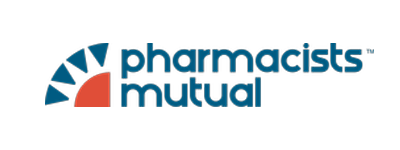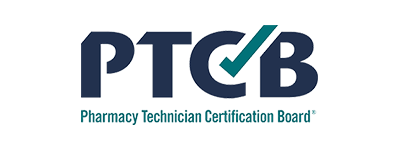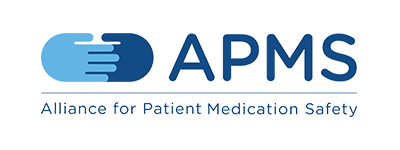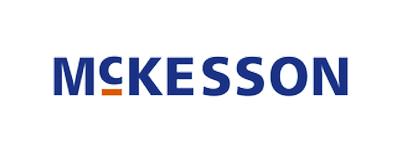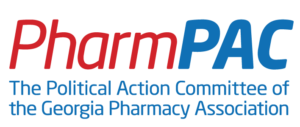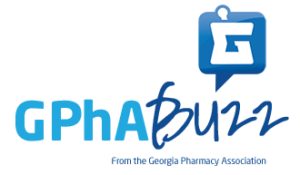2020 Legislative Session Wrap-up
Greg Reybold, General Counsel & VP of Public Policy, Georgia Pharmacy Association
Georgia’s 2020 session was, to put it mildly, a unique one. To begin with, GPhA’s initiatives were far reaching, and, following the success of 2019, fiercely contested by lobbyists for PBMs, insurance companies, as well as Medicaid care management organizations.
That combined with legislative session being suspended for well over two months following cross-over day, the budget needing to be approved with significant cuts, and a limited number of bills being taken up by the general assembly for the final 11 days of legislative session, made for head winds the likes of which we have never seen.
Nonetheless, GPhA, and its members, remained focused on its legislative initiatives. That focus resulted in, despite the adversity, one of GPhA’s most successful legislative sessions in history with the passage of four pieces of priority legislation as well as the engagement of an important study.
These bills now go to the Governor, with the hopes that they receive his favorable consideration and are signed into law.
As you read through the details of GPhA priority legislation please keep in mind that GPhA members were an integral part of the successes of this landmark legislative session. Time and again you answered the call. You were, however, not alone. Please join us in extending appreciation to the National MS Society and their Senior Manager of Advocacy, Heather Breeden; the Rx in Reach Coalition and Advocates for Responsible Care and their Executive Director, Dorothy Leone-Glasser; the Georgia Society of Clinical Oncology; and the Medical Association of Georgia.
We owe a special debt of gratitude to Representatives Knight, Cooper, Hatchett, England, Smith, Newton, Burns, Holmes, Stephens, and House Speaker Ralston. On the senate side we owe a special debt of gratitude to Senators Burke, Watson, Jones, Hufstetler, Tillery, Mullis, and Lt. Governor Geoff Duncan.
Should these bills become law, there will be more detail coming via the Georgia law update which will address the intricacies of the legislation including implementation dates, scope, and enforcement.
Finally, the body of work from the General Assembly and GPhA over the last several years represents what we believe to be amongst the most comprehensive and material legislation in the nation. Though it is not a cure for all problems with PBMs, and PBMs will continue to assert alleged grounds for not adhering, the legislation is a testament to the regard with which pharmacists and their patients are held both by GPhA and Georgia’s General Assembly. Of thousands of issues the General Assembly can tackle, they continue to do everything they can to fight for you and your patients. Please remember that, and, thank your representative and senator the next time you seem them.
PBM Reform
HB 946 (Rep. Knight) & SB 313 (Sen. Burke) represent a comprehensive rewrite of Georgia’s PBM code section (Chapter 64 of Title 33) that include some belt and suspenders changes to strengthen oversight and enforcement as well as innovative first in the nation changes designed to increase transparency, level the playing field and protect patients. Set forth below are highlights of the changes this bill contemplates.
Licensing and oversight
- Removes barriers on Commissioner enforcement.
- Provides the Commissioner of Insurance (“Commissioner”) the power to suspend PBM licenses for violation of the law.
- Gives the Commissioner the authority to conduct financial examinations and compliance audits; issue cease and desist orders; order reimbursement to a pharmacy or insured when a monetary loss has been incurred as a result of a PBM violation; and order payment of a fine up to $1,000 to go to a pharmacy or insured.
- Requires a PBM to make its records available to the Commissioner.
- Empowers the Commissioner to conduct audits following a violation to identify any similar violations.
- Requires PBMs to file MAC methodologies with the Commissioner’s office to enable Commissioner to investigate MAC complaints.
- Increases monetary fines from $1,000 to $2,000 per violation and up to $10,000 per violation when a PBM knew or should have reasonably known it was in violation.
- Increases licensing fee from $500 to $2,000 and renewal fee from $400 to $1,000.
Transparency
- Prohibits PBMs from imposing point of sale or retroactive fees
- Requires reporting of drugs paid 10% above and 10% below NADAC every four months and making the reports available to the public via a website.
- Prohibits differential treatment of 340b pharmacies.
- Prohibits PBMs from basing reimbursement of a drug on patient scores or outcomes.
- Requires PBMs offer plans the ability to receive 100% of all rebates (broad definition of rebate).
- Requires PBMs offer plans non-spread pricing options.
- Prohibits PBMs from engaging in the practice of spread pricing in state, county, and municipality plans.
Patient Protections
- Requires PBM contracted or employed physicians who make prior authorization and step therapy decisions in connection with appeals to practice in same specialty area in which they are advising.
- Strengthens steering prohibition to prohibit penalizing patients and plans when a patient uses a non-PBM affiliated in network pharmacy of their choice and prohibits PBM to PBM cross referral arrangements.
- Prohibits PBMs from deriving revenue from a pharmacy or patient.
- Prohibits PBMs from withholding coverage or requiring a prior authorization for a lower cost therapeutically equivalent drug.
- Prohibits PBMs from removing a drug from a formulary for the purpose of incentivizing an insured to seek coverage elsewhere.
- Requires PBMs to apply accepted copay assistance where there is only a brand name drug available to a patient’s copay and deductible.
- Strengthens ability of retail pharmacies to provide delivery services to their patients.
PBM Surcharge
- Imposes a first in the nation surcharge on PBMs and insurer clients on all claims administered when the PBM engages in the practices of steering or imposing retroactive fees. This surcharge is imposed for the purpose of encouraging payors to use PBMs that are not engaging in these prohibited practices.
Applicability to Medicaid managed care
- Removes Medicaid managed care company exemptions so that all prohibitions and patient protections apply in the Medicaid managed care market.
Pharmacy Steering & Audits
Building off of HB 233 which was passed in 2019, HB 918 (Rep. Sharon Cooper) strengthens anti-steering provisions which prohibit pharmacies affiliated with PBMs from filling and billing for prescriptions illegally referred and also remove certain exemptions and loopholes. In addition, this bill makes significant improvements to the Pharmacy Audit Bill of Rights.
Steering
- Removes language relied upon by DCH and CVS as justification for continued steering. This language also exempted PBM affiliated pharmacies from other pharmacy requirements.
- Strengthens anti-steering law by prohibiting steering via monetary penalties including withholding coverage/requiring patients to pay full cost of drug & prohibiting PBM to PBM pharmacy referral arrangements.
- Applies anti-steering protections to limited distribution drugs not commonly carried at pharmacies or oncology clinics.
- Applies anti-steering law to Medicaid managed care companies.
Pharmacy Audit Bill of Rights
- Applies protections to desk audits as well as on-site audits.
- Limits audits to no more than 100 prescriptions and no more than 200 prescriptions in a year (refills count as 1 prescription).
- Broadens “clerical error” to include omission errors.
- Expands period to correct a clerical error from 20 to 60 days.
- Expedites period preliminary audit report must be delivered from 120 day up to 30 days.
- Prohibits a PBM from imposing a penalty or fee in connection with an audit.
- Prohibits recoupment from a pharmacy except in cases of fraud; overpayment (limited to amount over paid); and misfill. Provides that when a patient receives the correct drug in the correct dosage and quantity pursuant to a prescription drug order than no misfill shall be found to have occurred.
- Provides that a PBM shall not audit a pharmacy more than once every six months.
- Increases Commissioner of Insurance oversight and ability to impose fines and restitution.
- * Medicaid fee for service audits and recoupments are still subject to O.C.G.A. 49-4-151.1
State Oversight
HB 991 (Rep. Hatchett) creates the Healthcare Transparency and Accountability Act which seeks to shine a light on the practices of state healthcare plans via the creation of an oversight committee; ensuring the committee has broad access to plan records; and requiring certain mandatory reporting.
- Creates oversight committee to oversee state healthcare plans and is comprised of a physician, a pharmacist, a consumer member, and 6 members of the general assembly.
- Gives committees the power to:
- Request and review records of state healthcare plan contractors and subcontractors (including PBMs); prepare public reports using aggregated data.
- Submit written questions to departments, agencies, and contractors.
- Make recommendations to departments and agencies.
- Retain third-party consultants including attorneys and actuaries.
- Request an audit of a state healthcare plan contractor or subcontractor (including PBMs) from the Department of Audits and Accounts.
- Requires contractors and subcontractors to make all books, documents, and records available to the Committee and the Department of Audits and Accounts.
- Requires a contractor to file an annual report to Committee which shall be available to the public including but not limited to amount paid by the state, MLRs, and dividends paid to shareholders or affiliates.
- Requires annual PBM report to Committee which shall be available to the public detailing, amongst other things:
- Aggregate rebates and fees collected and the amount retained.
- Aggregate pharmacy claims data.
- Aggregate amount paid to affiliate pharmacies.
- Names of 25 prescription drugs which were subject to most prior authorizations.
- Provides that an amount paid to a contractor and subcontractor is subject to disclosure to the public and is not confidential or a trade secret.
- Provides the Commissioner of Insurance with oversight and the ability to institute fines.
Medicaid Carveout Study
HB 947 (Rep. Knight) looked to, amongst other things, require DCH to engage a Medicaid actuary to conduct a study on the potential savings from carving out Rx benefits from the Medicaid managed care program and putting those benefits back into fee for service. Rep. Knight and GPhA agreed to press pause on the legislation after the Department went ahead and tasked its Medicaid actuary (the same company that conducted the West Virginia carve out study) with conducting the requested study. The study is scheduled to be completed by December of 2020. Note the midyear budget via HB 792 contained $175,000 for DCH to conduct the actuarial study.
Other legislation that passed and makes its way to the Governor’s office
- HB 759: Introduced by Rep. Parrish this bill updates the drug code.
- HB 791: introduced by Rep. Stephens this legislation authorizes pharmacist conversion of maintenance meds from 30 days to 90 days. Also included requirements for insurers to cover medications dispensed during declared emergencies which also passed via SB 391 (Sen. Kirkpatrick).
- HB 888: Introduced by Rep. Hawkins, this legislation looks to protect GA patients from surprise billing practices.
- SB 372: Introduced by Senator Tillery, this bill, amongst other things, increases the availability of naloxone to first responders via distributors.
- SB 482: Introduced by Senator Burke, this legislation creates the Georgia All Payer Claims database which will require insurers to file payment data to the state. The purpose of this legislation is to allow data driven decisions for the purpose of increasing access and quality of care while reducing costs.
- SB 359: Senator Hufstetler’s bill was substituted on the House side by Rep. Kelly to provide for protections for providers and other business owners from COVID-19 liability claims. This bill seeks to provide protection from claims of negligence but preserves claims for gross negligence and intentional torts.

